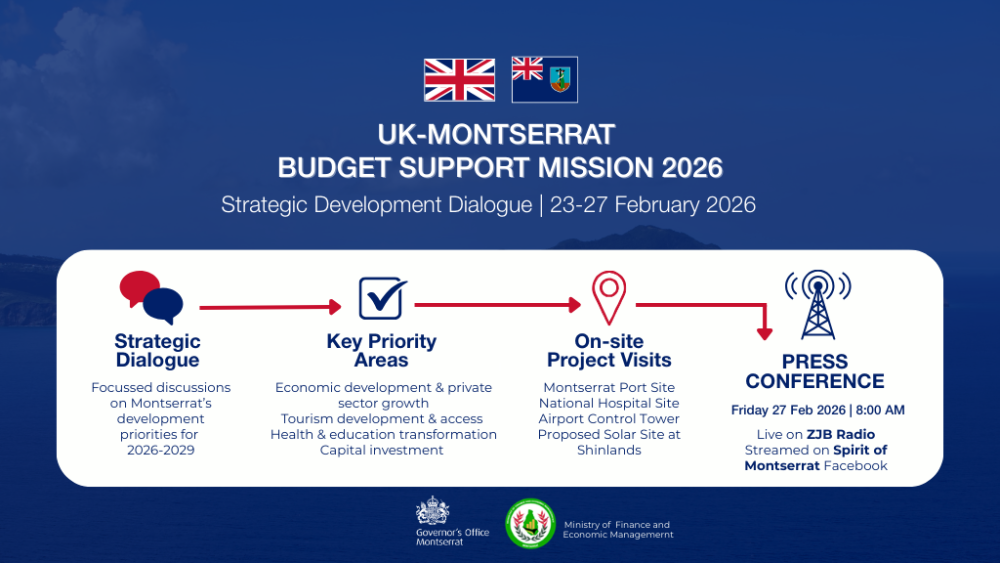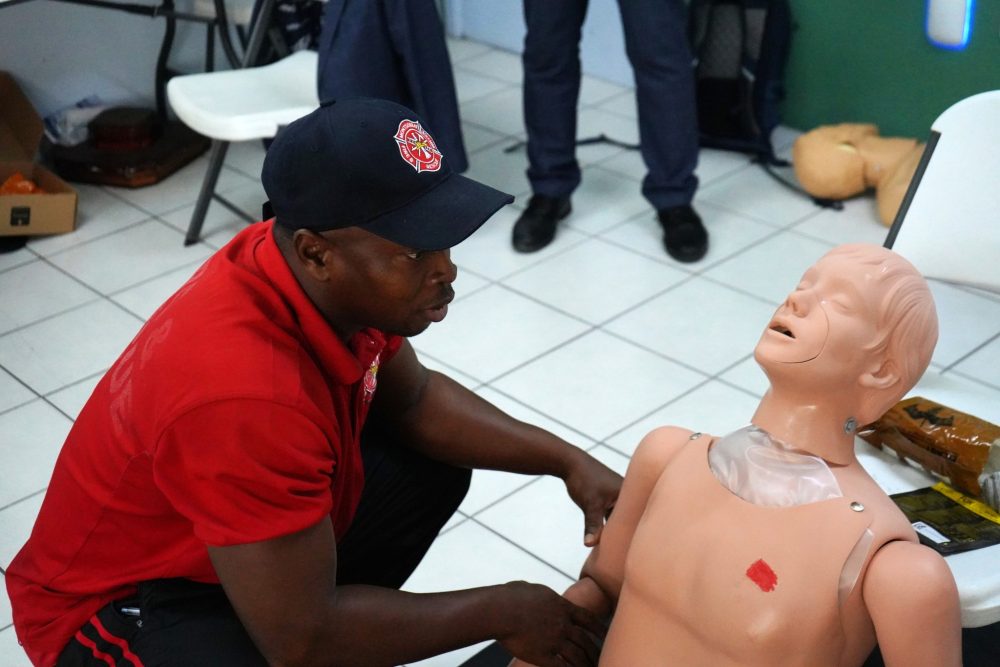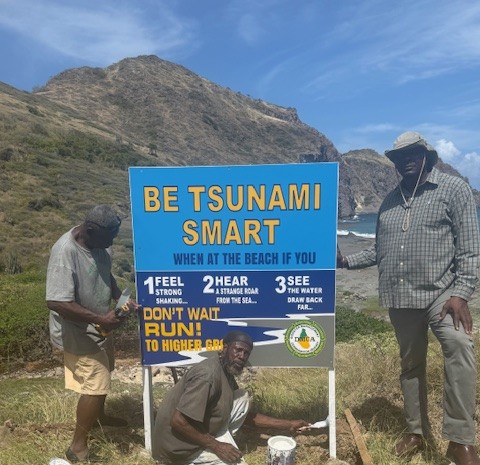UK-based Institute for Environmental Analytics is to partner with the Government of Montserrat to implement an innovative renewable energy analytics platform – RE-SAT – to support the transition from fossil fuels to renewable energy.
The partnership has been made possible by investment from the UK Space Agency International
Partnership Programme (IPP) and reflects Montserrat’s position at the forefront of promoting clean growth.
RE-SAT fuses satellite and in-situ weather data with advanced analytics to provide highly detailed renewable energy information to help users:
- Explore and define the best renewable energy mix.
- Plan where to locate different renewable energy infrastructure.
- Assess the potential financial viability of renewable energy investments.
- Estimate power production and variability, taking into account seasonal weather patterns.
A Memorandum of Understanding (MoU) is being signed to mark the partnership between the Ministry of Communications, Works, Energy and Labour (MCWEL) and the IEA. They will work together and with other key stakeholders to tailor RE-SAT to their needs and build capacity to support its implementation, combining the IEA’s expertise with in-country knowledge and skills.
Minister of Communications, Works, Energy and Labour, Paul Lewis welcomed the collaboration, saying: “The Government of Montserrat’s vision to transform to 100% renewable energy on the grid and its green connected and thriving ICT theme clearly merges ICT, telecommunications and energy
agenda to create an environment for economic growth. The MoU between MCWEL and the UK-based Institute for Environmental Analytics to implement an innovative, renewable energy analytics planning platform to support the transition from fossil fuel to renewable energy is welcomed.
 “This tool will inform decisions pertaining to best possible energy sources and combinations, ideal energy infrastructure locations, estimated power production and variability based on seasonal weather patterns. We embrace the development and use of this tool to inform the Government and private sector renewable energy investments.
“This tool will inform decisions pertaining to best possible energy sources and combinations, ideal energy infrastructure locations, estimated power production and variability based on seasonal weather patterns. We embrace the development and use of this tool to inform the Government and private sector renewable energy investments.
“I express our gratitude to IEA and the UK Space Agency for including Montserrat as one of the six small island developing states in their International Partnership Programme. We look forward to working together in the development of our island.”
Permanent Secretary Beverley Mendes added: “The Ministry of Communication, Works, Energy and
Labour is pleased to have been afforded the opportunity to be at the forefront of this collaboration between the Government of Montserrat and UK-based, Institute for Environmental Analytics. The development and application of a renewable energy analytical planning platform will allow for more informed decisions to be made as it pertains to the investigation, implementation and improvement of renewable energy sources on Montserrat. A number of Government entities have been enlisted in the development process to ensure the platform is equipped with the necessary data. We are looking forward to working with the IEA on such an important initiative.”
Colin McKinnon, CEO of the IEA, said: “By working closely with Montserrat we will provide the quality of data they need to develop a sound business case to switch to renewable sources to a far greater extent. Understanding minute-by-minute variability is a key question as it affects the requirement for reserve energy generation. However, long periods of historic observations are often not available from existing data sources. With our world-leading skills in data analytics we will use Earth observation data to construct a synthetic weather model for Montserrat to improve both the planning of renewable investment and also the management of reserve capacity.
“As RE-SAT is funded by the UK Space Agency International Partnership Programme, the project runs as a true partnership, using the knowledge and expertise of our Montserrat partners. It is not a one-off consultancy exercise by a third party.”
Graham Turnock, Chief Executive of the UK Space Agency, said: “We’re proud to support Montserrat
in their transition from fossil fuels to renewable energy, which will deliver greater self-sufficiency while reducing global carbon emissions to combat climate change.”
Montserrat is one of six small island developing states (SIDS) to benefit from £2.9m investment from the UK Space Agency IPP in RE-SAT. The others are: St Lucia, Mauritius, Palau, Tonga and Vanuatu.
Discover more from Discover Montserrat
Subscribe to get the latest posts sent to your email.



